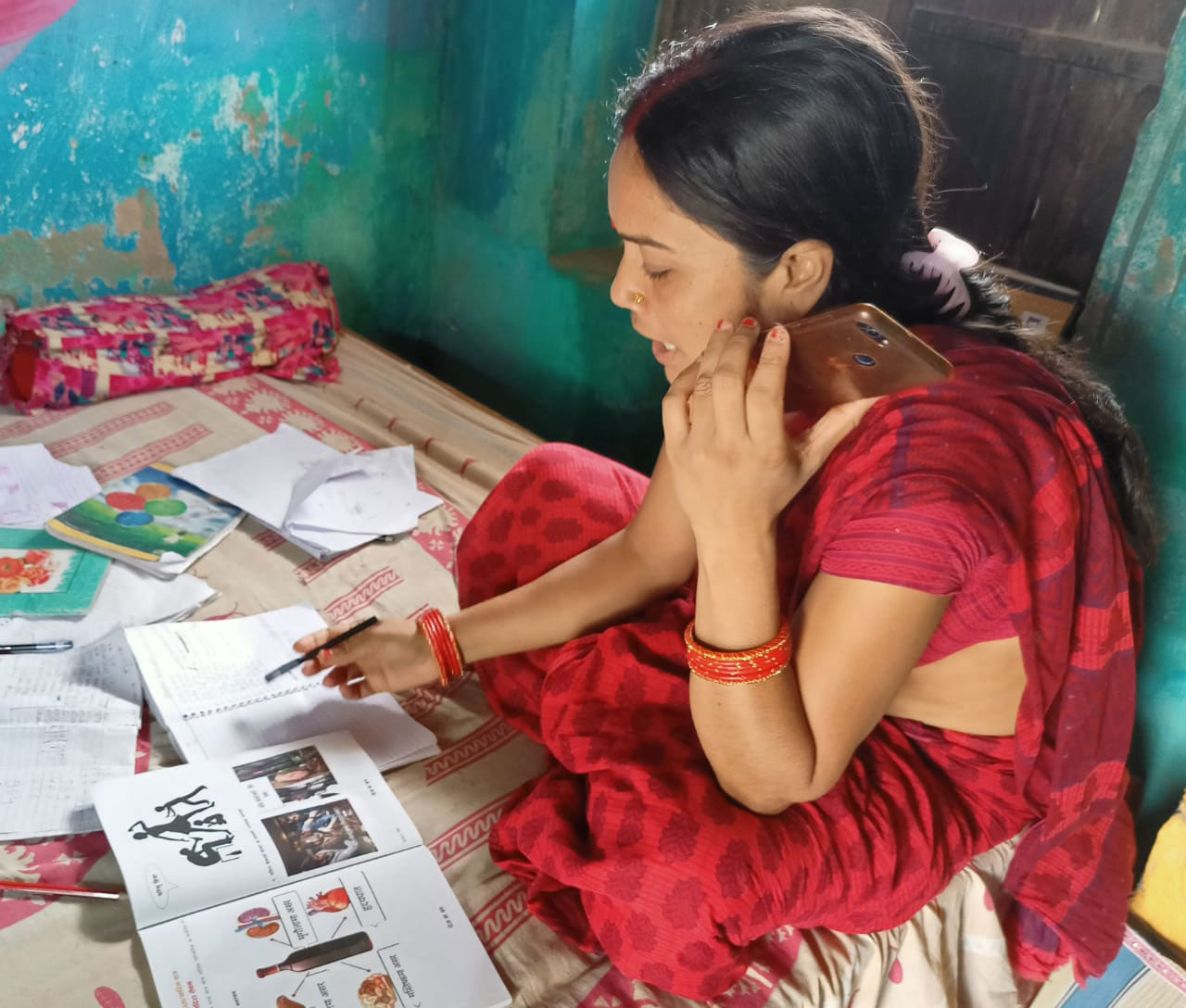Early April this year, signs of the second wave of COVID-19 were evident in Nepal. The confirmed positive cases spiked at an alarming rate leading to the Government imposing lockdowns across the Kathmandu Valley and many other hotspot districts to slow the spread of the virus.
With the restrictions in movement and the severity of the pandemic, our programme switched to the Distance Teaching and Learning modality where girls continue learning remotely through mobile and audio devices. Girls with access to mobile phones were identified and regular calls between the Educators and the participants started for the Life Skills sessions. Simultaneously, weekly assessments and daily attendance are recorded to track the learning levels of the girls. Through Distance Teaching and Learning (DTL) we reduce the risk of girls dropping out and minimize the learning gap. Often, acts of violence and abuse rise drastically during lockdown and children are forced into labour to reduce the financial burdens at home caused by the pandemic. Through the Life Skills lessons, regular wellbeing checks are conducted upon the girls. Furthermore, the Life Skills team had already disseminated lifesaving messages on COVID-19 along with precautionary information to the project participants.
Currently, Protection Advisors, Social Workers and Community Educators are actively conducting the Life Skills lessons through mobile phones. They have been trained on remote communication safeguarding and standard operating procedure for remote teaching. Prior to the Distance Teaching and Learning classes, consent from the participants was collected for remote learning through mobile devices. The lessons are prepared beforehand while attendance and weekly assessment is regularly carried out. The team has shown their dedication and effort to continue teaching even at such a critical time when many families are being affected by the virus. Some of our staff also contracted the virus but upon recovery, they continued teaching remotely.
The wellbeing of our project participants is always our priority, the girls are encouraged to express their concerns and give feedback. If there are any safeguarding and protection issues, participants and their family members either inform the focal person from the Community Member Community (CMC) or our field staff and can even directly report to the district safeguarding focal person. This chain of communication has helped us support our participants even more especially during the time of crisis. A recent case of Gender-Based Violence was reported during this lockdown, the girl is currently receiving psychosocial support through a service provider in our referral. Without this channel of communication and the Life Skills lessons that we teach it is likely that the impact of the lockdown could be severe for many.
The pandemic has brought life to a standstill, with all aspects of life deeply impacted. Our project participants belong to the Musahar community one of the most vulnerable communities in Nepal, the pandemic has pushed them even further into poverty. With their livelihood already impacted by the lockdown and many affected by the virus may need to start over again. For some girls, the programme has helped them push through this crisis, a line of hope that we can help them fulfill their dreams of graduating from a school or learning to run their own small business with our support.

